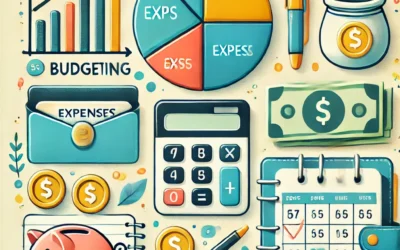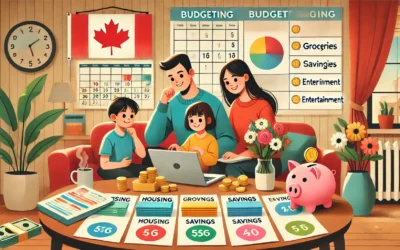In today’s challenging financial climate, budgeting is more important than ever. After all, you can’t control what happens in the stock market or other volatile financial markets. But you can have control over how you react to those situations. The 50/30/20 budgeting rule is a great way to stay on track with your money no matter what the world throws at you. It sounds complicated, but it’s actually pretty simple.
This rule helps you manage your income and expenses by allotting specific percentages of your income for fixed costs or needs (such as housing and utilities), variable costs/wants (such as groceries and gas), and personal savings (such as retirement savings and emergency savings). It might not be rocket science, but following this rule to manage your money can make a huge impact on your long-term financial health. Keep reading to learn more about this simple but effective strategy for managing your money.
50/30/20 Budgeting Rule in a Nutshell
The 50/30/20 budgeting rule allocates specific percentages of your income for fixed costs, variable costs, and personal savings. Eating into your personal savings because you’re overrun with high fixed costs is one of the most common mistakes people make when following this budgeting rule. This budgeting rule is particularly important now because high fixed costs like housing, health care, and education often force people to sacrifice their personal savings. When times are good, it’s easy to overspend on fixed costs. But when times are bad, it’s critical that you have savings to fall back on so you don’t end up in debt or financial ruin.
Why the 50/30/20 Rule Is So Important Now
Housing costs are a huge reason why the 50/30/20 rule is so important now. In fact, housing makes up a whopping 30% of most people’s budgets. Unfortunately, many people choose to ignore the high cost of housing by simply paying whatever rent or mortgage payment they can afford each month. This isn’t a great strategy in the long run, but it’s a common one.
The 50/30/20 budgeting rule helps you better manage your housing costs by setting aside a specific percentage of your income for housing each month. If 30% of your income goes to housing costs, you’ll have to make tough decisions if the cost of housing goes up. But if you have a fixed cost that takes up 50% of your income, you’re more likely to ignore the rising cost of housing.
How to Follow the 50/30/20 Rule
When creating your budget, follow the 50/30/20 rule. In other words, 50% of your income goes to fixed costs, 30% of your income goes to variable costs, and 20% of your income goes to personal savings. The 50 percent you budget for fixed costs includes your housing, utilities, transportation costs, and any other recurring monthly bill.
This is the category that often gets overlooked when people create their budgets. But the 30 percent you budget for variable costs helps you avoid making the mistake of eating into your savings because you have too many high-cost fixed expenses. Variable costs are things like groceries, gas, and bills that come up on a regular basis but don’t take up a significant portion of your income.
20% of Your Income Goes to Personal Savings
One of the most important parts of the 50/30/20 budgeting rule is the 20 percent you save for personal savings. If you’re not currently saving at least 20% of your income for retirement savings and emergency savings, you’re doing yourself a disservice. While it’s understandable to put retirement saving on the back burner when times are tough, you’ll regret it in the long run.
If you don’t have enough money saved to retire comfortably, you’ll either have to keep working or find other ways to make money. Personal savings is the perfect place to put any money you aren’t currently using. Money you put in your personal savings accounts is money you don’t have to worry about, which can help you relax a little bit.
Bottom line
The 50/30/20 budgeting rule is a great way to stay on track with your money no matter what the world throws at you. It’s important to remember that when times are tough, you have to be even more careful about managing your money. Eating into your personal savings because you have too many high-cost fixed expenses is a common mistake. When times are good, it’s easy to overspend on fixed costs. This rule helps you avoid both of those potential pitfalls.



